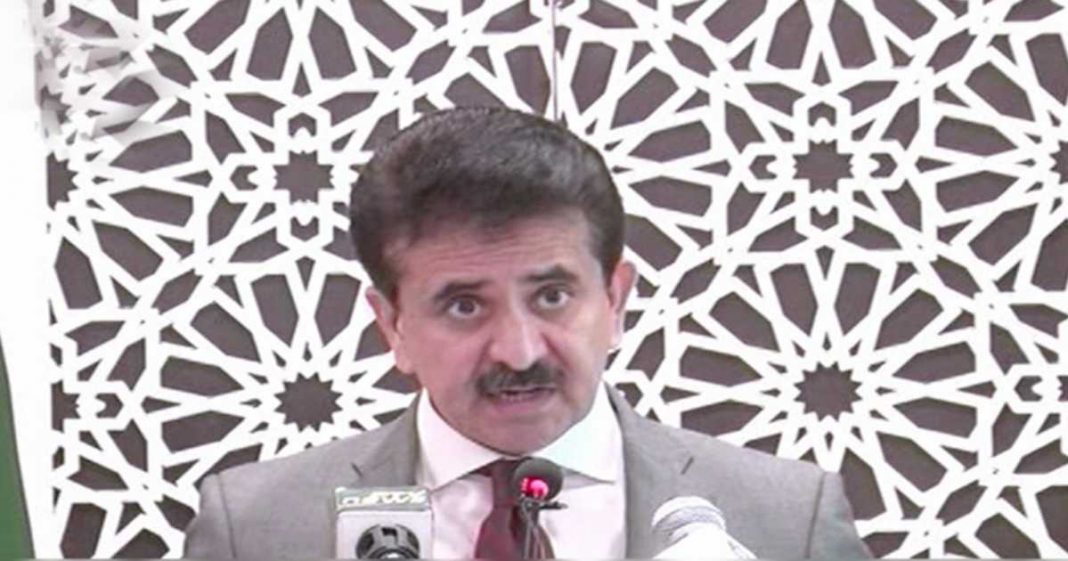The Foreign Office on Thursday said that the onus was on India to create an enabling environment for resumption of dialogue with Pakistan but did not confirm or deny a statement by the prime minister’s aide on national security that New Delhi sent “messages” for re-engaging with Islamabad.
“As for the interview of Dr Moeed Yusuf, the SAPM on National Security and Strategic Policy Planning, there is nothing to add to what the SAPM shared during his detailed interview,” Foreign Office spokesperson Zahid Hafiz Chaudhri told a weekly news briefing.
The desire for talks expressed
In an interview with Indian journalist Karan Thapar, the PM’s aide revealed that last year, India sent some messages expressing desire for talks. He, however, did not elaborate further whether those messages were sent through back channels or some other countries.
Moeed said that for any dialogue to take place India had to fulfil certain preconditions that include the release of all political prisoners, end of military siege and blockade, a reversal of domicile law, and an end to human rights abuses and state-sponsored terrorism in Pakistan. Indian external affairs ministry, meanwhile, denied it sent any messages to Pakistan for the resumption of talks.
When the spokesperson was asked whether Pakistan received such messages, he instead said that Pakistan had been repeatedly saying that the onus was on India to create an enabling environment by rescinding its illegal and unilateral actions, ending its state terrorism against the Kashmiri people, and agreeing to resolve the Jammu and Kashmir dispute in accordance with the relevant UN Security Council resolutions and the wishes of the people of Kashmir.
Onus for India – Pakistan talks is on India which needs to create a conducive environment for talks, reverse all actions in IIOJK, Don’t have anything to add further on NSA’s comment that India reached out to Pakistan for talks says @ForeignOfficePk in its weekly brief pic.twitter.com/wv9fVuMuAi
— Anas Mallick (@AnasMallick) October 15, 2020
The statement by the Foreign Office spokesperson had more clarity under which conditions Pakistan could re-engage with India. Unlike Moeed’s statement, the Foreign Office spokesperson made it clear that reversal of all illegal and unilateral actions by the Modi government was a prerequisite for any talks with India.
A call for the reversal of Modi’s illegal actions
“It is India that has vitiated the atmosphere with its illegal and unilateral actions of August 5, 2019 in IIOJK and with continuous belligerent rhetoric,” the spokesperson told reporters further.
“We have been consistently saying that India is trying to change the demographic structure of IIOJK in violation of international law, UN charter, the United Nations Security Council Resolutions, 4th Geneva Convention and humanitarian norms.”
Read More: Pompeo warns of China risks ahead of US-India talks
He said that Pakistan had been consistently demanding that the demographic changes should immediately be stopped and this process be reversed. On its part, Pakistan will continue to highlight India’s state terrorism in IIOJK, and its denial of the fundamental freedoms and inalienable right to self-determination of the Kashmiri people.
He said that Pakistan had consistently maintained that there could be no resolution of the Jammu and Kashmir dispute, without letting the Kashmiris exercise their inalienable right to self-determination, as enshrined in the relevant UNSC resolutions.
Regarding Indian involvement in acts of terrorism, he said that Pakistan had been consistently sensitising the international community about the Indian leadership’s threatening statements to use terrorism as a tool to destabilise Pakistan.
“Pakistan has already shared with the international community, incriminating evidence about the Indian intelligence agency RAW’s involvement in terrorist activities in Pakistan,” he added.
At the upcoming meeting of the Financial Action Task Force (FATF), the spokesperson said that the process of the FATF was ongoing. “Pakistan is implementing the FATF Action Plan since 2018 and we have made significant progress in this regard. Our entire AML/CFT regime has been revamped in compliance with the action plan to bring it to the international standards set by FATF,” he informed reporters.
The substantial progress made by Pakistan under a huge national effort includes steps in legislative, regulatory and operational domains. “The FATF has also acknowledged Pakistan’s political commitment and the progress made by us in a number of areas in the action plan. We are committed to and moving towards completion of the action plan. We remain engaged in the process,” he added.













